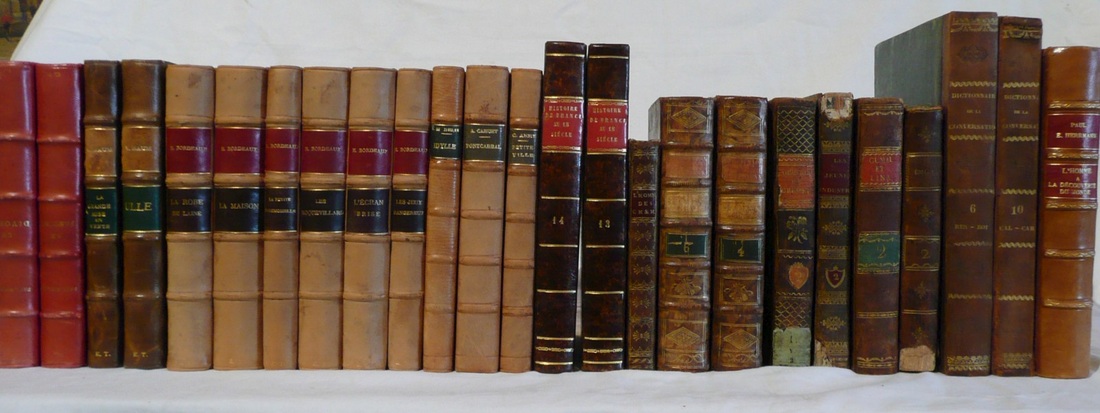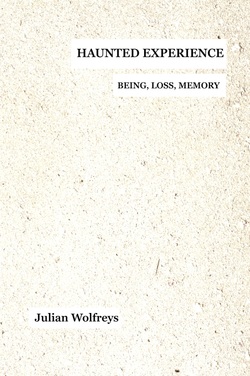Being and Belonging (the idea of Europe)
What's wrong with belonging? ‘Being’: the idea is as old as the hills. It is often bound, not to loss, but to concerns with ‘identity’ and ‘subjectivity’. Being becomes confused with where one lives; who one is becomes confused with a sense of belonging to a family, a tribe, a group, a region, a nation, an alliance, or even a state (nation state or economic union, with borders that are perceived as real or taken as cultural, legal and economic; as for example in the idea of ‘Europe’). The state of Being is confused with a sense of belonging. As soon as there is belonging, though, there is the fear of loss, and with that there arrives the concern with inclusion, the anxiety over exclusion, and a perpetual condition of crisis. This is the case, whether one speaks of the self, a nation or an idea of a community. Why? Because Being, even understood through the idea of loss, is never an abstract, but is always rooted, grounded. Being is always already a Being-there, a Dasein. ... Allow me to take a detour therefore through one such, having to do with the idea of ‘being-European’ before returning to the principal foci of this book. The justification for this, if one can be made? Achieved no doubt too hastily, it would be this: that any sense of Being I may have is ‘grounded’ by a sense of belonging (more or less uneasily), of being made a subject of, the idea of ‘Europe’. In signalling this, I am not making an argument for a consideration of the European Union. (This last term is itself a problematic figure, a trope haunted by the dissolution of its own supposed ‘gathering’, ‘ontology’, ‘community’, ‘auto-co-immunity’, its own fascean collective ‘bundling’ by laws, economic practices and shared interests.) Rather, by referring to my ambiguous, not to say ambivalent sense of being a European, of Being-European, I am gesturing toward a vast, and heterogeneous matrix of thought, language, behaviour, sensibility, that is as spiritual as it is material, involving taste, culture, epistemology, ideology, and so on; and which itself/themselves can be found to be traced through with both the legacies of Indo-European languages and the cultural traces of Greco-Latinate-Hebraic ‘identities’ (for want of a much better word), to name provisionally only the most obvious of inheritances. Every I contains multitudes, is haunted by the spectral work of innumerable phantoms and phantasms of the other, each irreducible, without the trace of difference, to a ‘one’, an ‘I’. A spectre, it might be said, as a philosopher once did, is haunting Europe, the spectre of every other Europe, Europe without unity, without number. My ‘being-European’ is therefore always a ceaseless reorientation and disorientation, a territorialisation and a deterritorialisation of the self, given, having a place, being, to use the Heideggerian neologism, en-placed and taking place. What I refer to, with deliberate naivety, as ‘spiritual’ above is nothing other than the admission that any phenomenological sense of a being-there, a Dasein, is one that admits to a materialist historiography, but, paradoxically, a materialist historiography acknowledging its own lack of groundedness, and its being haunted, perpetually. Everything I say, assume, argue, propose, in the present volume is touched, riven, articulated and contradicted, countersigned by, the inescapable subjectification by, and sense of belonging to, discourses, praxes, and epistemologies that haunt my Being and themselves have spectral, as well as manifest histories. Someone who identifies him- or herself as a European, without identifying which European, what kind of European, whether there is more than one ‘European’, less than one, no more than one, approaches you, and offers to tell you a joke, beginning thus: A Kantian, a Hobbesian, and a Marxist walk into a bar, arguing over the definition of Europe. How the joke continues is irrelevant. As the beginnings of jokes go, this one does not seem particularly promising, the less so if we realise that there is no punch line as such, no teleological end point, properly speaking. We would do well to do away with thinking teleologically about Europe, if that is possible; for to do so would be to draw us back into all the old traditions of thought − traditions as old as the idea of Europe itself. I will not say ‘as old as Europe’, for this would be to fall into the mistake of the person identifying him- or herself as a ‘European’, with there being in place an assumption that such an identity was already a given. Thus, the ‘idea of Europe’, a notion of ‘a Europe’, or several ‘Europes’, different configurations for this idea − hardly worthy of the name ‘concept’ − some of which overlap, providing in a Venn diagram the mythical mapped space for a Europe in common. A Utopia, perhaps? But still, note the Venn diagram, at least in your imagination: there are still borders to be negotiated, and with these border crossings, boundaries, sentry posts, watch towers, and so on.... And this would entail remaining haunted by certain phantoms we barely recognise. The boundaries are in play, if not entirely in place − and the dream of a Venn diagram is that it can always be rearranged, the idea of a Europe-in-common remains one haunted by the idea of Europe itself, as well as by thoughts of hospitality, inclusion and exclusion, loss and gain. There is a spectre haunting Europe, and it is the spectre of economic choices and decisions, by which matters of openness, welcome, guest and host, conditionality itself as the spectre of all unconditionality that goes by the name of ‘Europe’, are decided. As ‘Europeans’ therefore we would, in effect, and in practice, be entailed by a certain inheritance that goes by the name of Europe, even though we cannot yet be sure that (a) there is such a ‘thing’ as Europe; or (b) that we agree as to the possible or impossible limits of such a definition; or (c) that the very idea of a Europe leaves all definition in ruins, and that an authentic identity for a Europe, at once singular and endlessly open to the other, remains, as a very spectre itself, to come. Nothing can be less certain, it is not a future that we can programme or for which we can be prepared. This is what ‘Europe’ entitles, and to which we remain entailed. Free everywhere in the name of ‘Europe’ we remain enslaved to the idea by not knowing what it is we mean, when we speak of Europe, as opposed to all that we think might not be Europe. (And who would be the first to say what is not European, today?) To be thus entailed would be to find ourselves in the experience of the aporetic. Like one of Kafka’s figures, we would be forever before a gate and a gatekeeper, if not before the law. In finding ourselves thus placed, we would find ourselves − again, as is historically the case with Europe − in a crisis. --- What's wrong with belonging to a nation state? Is the nation state a necessary unit of concern still? There is no philosophical reason for this. The nation state is a particular configuration of institutions that emerges as a contingency at a particular point in time, and satisfies a function, more or less, at that point in time. It has not always been there and may not always be there. A question arises: how can we think about alternative projects that satisfy the functions fulfilled by the nation state in recent times? ...Cosmopolitanism is the experience of one’s Being-in-the-world, rather than nationalism or patriotism, which is the experience of one who defines themself in terms of Being-at-home (a national home let us say.) ...the idea of the state must be done away with, it must be apprehended as that which we must lose in order to find the very idea of Being, and so begin again. Beginning again means abandoning the nostalgia for home, and seeking instead an authentic sense of dwelling. References: This is an edited extract from: Julian Wolfreys: Haunted Experience |
Explore |


